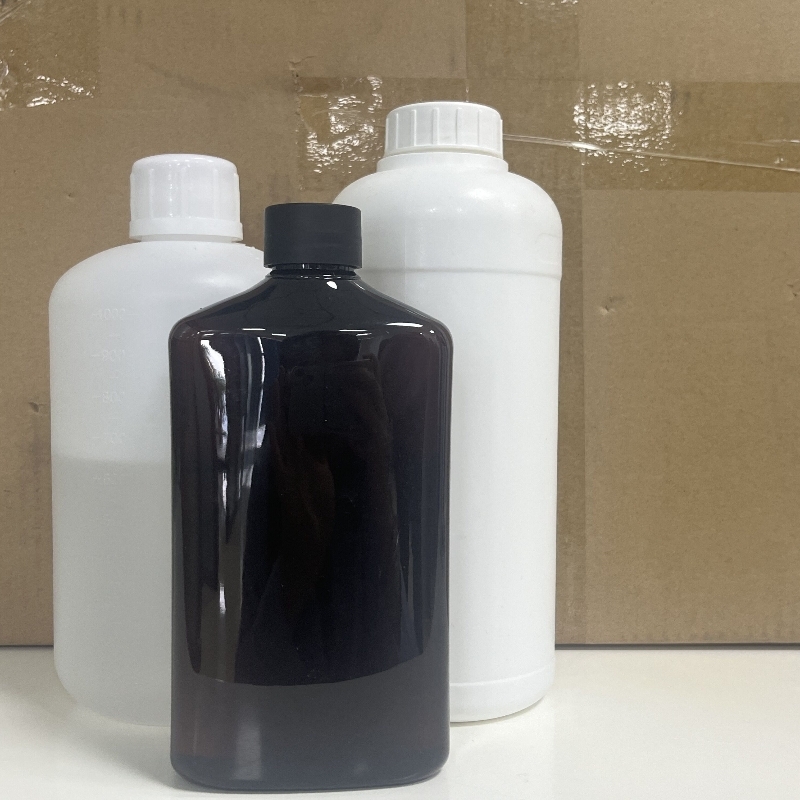-
Categories
-
Pharmaceutical Intermediates
-
Active Pharmaceutical Ingredients
-
Food Additives
- Industrial Coatings
- Agrochemicals
- Dyes and Pigments
- Surfactant
- Flavors and Fragrances
- Chemical Reagents
- Catalyst and Auxiliary
- Natural Products
- Inorganic Chemistry
-
Organic Chemistry
-
Biochemical Engineering
- Analytical Chemistry
- Cosmetic Ingredient
-
Pharmaceutical Intermediates
Promotion
ECHEMI Mall
Wholesale
Weekly Price
Exhibition
News
-
Trade Service
On 11 December, Mercadon announced that the European Medicines Agency (EMA) Human Medicines Commission (CHMP) had taken positive advice on the new adaptation of Keytruda (pembrolizumab, Pabli pearl monoanti) and recommended approval of Keytruda as a single-drug treatment for adult patients with microsatellite highly unstable (MSI-H) or mismatched repair defective type (dMMR) colorectal cancer.
recommendation is based on the results of the key Phase III clinical KEYNOTE-177 (NCT02563002) trial, in which 307 previously untreated metastasis MSI-H-1 cases were treated in a ratio of 1 to 1 in this Phase III, open label trial. DMMR colorectal cancer patients were randomly grouped, with each group receiving 200 mg of Paboli pearl monotherapy or chemotherapy once every 2 weeks (5-fluorouracil, and using or not using beva pearl monoantigen or sytoxidium).
chemotherapy group were treated with Paboliju monotherapy across groups after the progress of the disease, with the two main endpoints being progress-free survival and total survival.
in the second interim analysis after median follow-up (from random grouping to data cut-off date) of 32.4 months (range, 24.0 to 48.3), Pabli-Pearl monoantigen was superior to chemotherapy in terms of progression-free survival (median, 16.5 vs. vs. 8.2 months; risk ratio, 0.60; 95% confidence interval ;P .0002).
the estimated duration of the 24-month follow-up was 13.7 months (range, 12.0 to 15.4) and 10.8 months (range, 9.4 to 12.2), respectively.
as of the statistical date, 56 patients in the Pabliju single-dose group and 69 patients in the chemotherapy group had died.
total lifetime data is still accumulating (66 per cent of the required number of events), blinding will continue until final analysis.
the overall remission (full or partial remission) rates of the Pabli pearl monoantigen and chemotherapy groups were 43.8% and 33.1%, respectively, according to The Response Criteria in Solid Tumors (RECIST) version 1.1.
in patients who achieved overall remission, the remission continued at 24 months in 83 percent of patients in the Pabliju monoantigroup and 35 percent in the chemotherapy group.
22 percent of patients in the Pabliju monoantigroup and 66 percent of patients in the chemotherapy group (including 1 death) had treatment-related level 3 or higher adverse events.
the non-progressive survival of patients with MSI-H-dMMR metastatic colorectal cancer, Keytruda, as a single drug treatment, significantly extended the patient's progression-free survival and had fewer adverse events associated with treatment than chemotherapy.
Keytruda's anti-cancer active colorectal cancer in the intended treatment population is the third highest tumor in the world and is a heterogeneous disease according to genetic concepts.
the genetics of colorectal cancer are very different, but its chemotherapy program is basically uniform.
a relatively well-studied subset of genetics in colorectal cancer - misalmediation of the repair defective type (dMMR) colorectal cancer, accounting for about 15% of all colorectal cancer.
this defect causes cells to lose the ability to recognize and repair spontaneous mutations, resulting in very high tumor mutation loads and microsatellite sequence changes, which in turn make these tumors highly unstable (MSI-H) colorectal cancer.
increasing body of research shows that conventional chemotherapy is less effective against MSI-H-dMMR colorectal cancer, but so far the literature has not been conclusive, chemotherapy is still the standard treatment for PATIENTs with MSI-H-dMMR colorectal cancer.
PD-1 inhibitor combination chemotherapy refractive MSI-H-dMMR metastatic colorectal cancer patients have previously been approved by the U.S. FDA, Paboliju monoanti/Navuliyu monoantitor for the treatment of MSI-H-dMMR metastatic colorectal cancer patients who progress after treatment with fluorine, oxaliplatin, and Iliticon.
Keytruda's positive recommendation by CHMP will help it obtain a faster approval and listing from the European Commission, with the final application expected to be completed in the first quarter of 2021.
。







